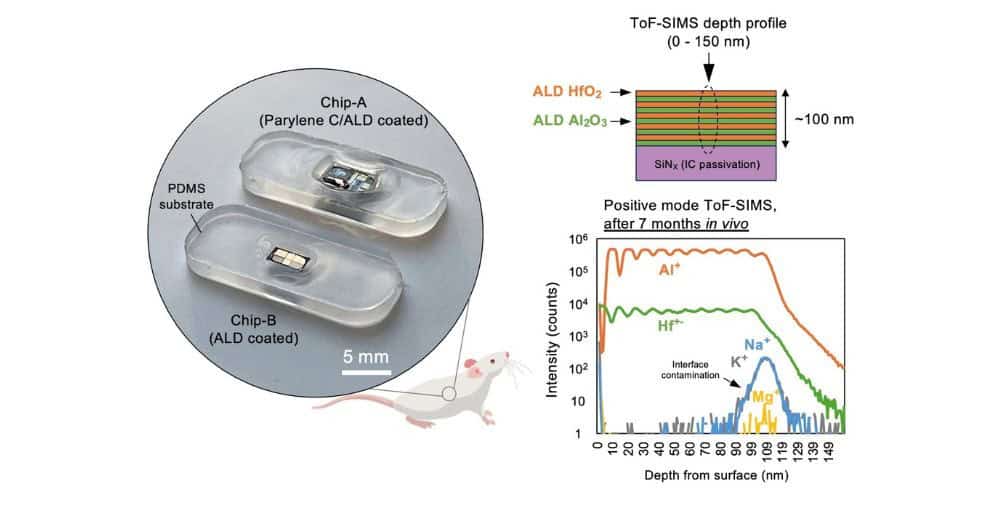
The results, published in the journal Nature Communications [1], show that silicon chips can function stably electrically under physiological conditions over long periods of time. A partial coating with PDMS (polydimethylsiloxane) proved to be an effective protective barrier against body fluids. In accelerated in-vitro studies with heat, salt solution and electrical stress, the chips remained functional over a longer period of time. Material analyses confirmed that while unprotected areas showed signs of degradation, the structure in PDMS-coated zones remained largely intact.
In addition, the team evaluated the suitability of atomic layer deposition (ALD) and hybrid multilayer coatings for miniaturized implants in another publication in Small [2]. The investigations show that ultrathin ALD coatings offer high biostability and thus represent a promising solution for future bioelectronic applications.
Neuronal implants are a key technology for the treatment of neurological diseases such as Parkinson’s or clinical depression. They make it possible to stimulate, block or record neuronal signals – especially in chronic use. The long-term stability of the electronic components is a key prerequisite for clinical success.
Links to the publications:
[1] https://www.nature.com/articles/s41467-024-55298-4
[2] https://onlinelibrary.wiley.com/doi/10.1002/smll.202410141
– – – – – –
Further links
👉 www.izm.fraunhofer.de
Photo: Fraunhofer IZM




